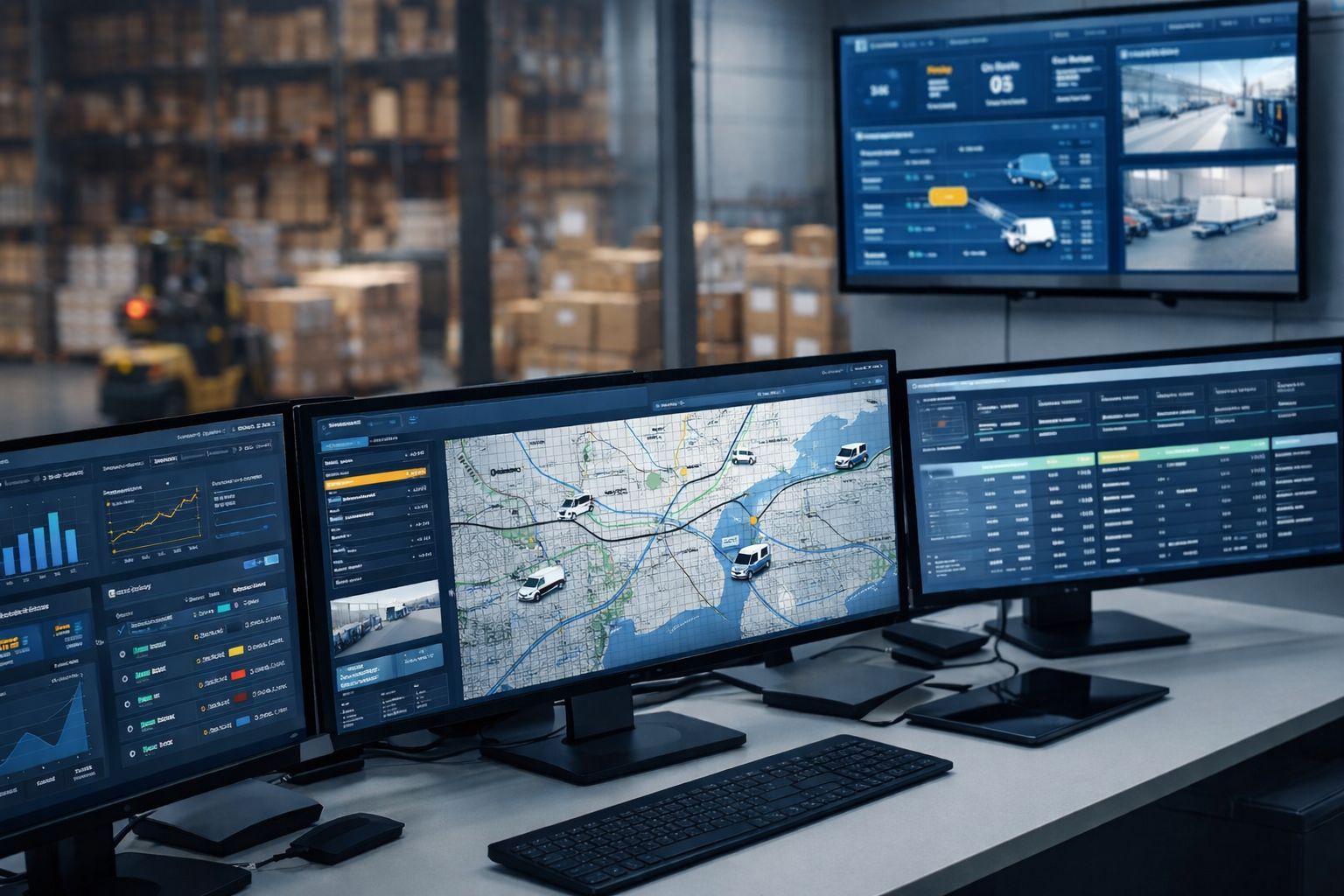Custom Software in Logistics: From Automation to Intelligence
In 2025, logistics has become the proper term for not only moving goods but also for intelligent systems orchestration. The transition from basic automation to full intelligence has been the turning point for the whole sector.
Businesses come to the conclusion that off-the-shelf software is not capable of managing the intricacy of contemporary international supply chains. The way out is through custom logistics solutions—flexible, data-driven, and thoroughly integrated ones.
From Automation to Intelligence
A couple of years back, the term automation was associated with the application of standard ERP, TMS, or WMS systems for the enhancement of operations. These systems were advantageous for the quick movement of companies, however, they were not intelligent. At present, the logistics sector depends on the platforms that are capable of executing the tasks as well as learning from them.
No longer rely on human to do things, AI-powered modules now take over through predicting the disruptions, rerouting the shipments, and optimizing the storage automatically. Instead of rule-based workflows, logistics software has become self-evolving — learning from real-world data, refining algorithms, and adapting to new market realities.
Key drivers of this transformation include:
-
-
- Rubbing together IoT and sensor networks resulted in an instantaneous and transparent view over the transportation and storage of goods.
- Predictive analysis put a spotlight on delays and changes in demand ahead of time.
- An interconnected data system in which ERP, CRM, and AI platforms operate synchronously.
-
Such developments transform the logistics sector into a smart network that grants each node the power to make data-driven decisions automatically.
The Power of Custom Software
Unlike off-the-shelf tools, custom logistics solutions are built around specific business needs. They integrate seamlessly with legacy systems, allowing organizations to transition smoothly to AI-driven workflows.
To illustrate, a specially made route optimization engine can take into account many dynamic factors - such as traffic and weather, along with driver schedules and real-time demand. A different case is predictive maintenance modules, which look at vehicle data to stop breakdowns before they happen.
DHL, FedEx, and Maersk, among others, are the companies that have already started to implement tailor-made AI ecosystems to deal with that complexity in logistics at large scale. As per Gartner (2025), it is expected that more than 60% of logistics companies will utilize AI-powered decision-making systems by the year 2026.
Case Study: Lab42 Approach
At Lab42, we help logistics companies transform operations through tailored AI solutions that merge business logic with real-time data.
Our systems connect sensors, GPS tracking, and ERP modules into unified intelligent networks that can predict, analyze, and act — not just report.
For example, one of our clients in freight logistics implemented a Lab42-built Smart Dispatch System that automatically recalculates delivery routes every 10 minutes based on live conditions.
The result:
-
-
- 22% lower fuel consumption.
- 30% faster delivery time.
- 15% reduction in unplanned downtime.
-
That’s what intelligent logistics looks like in practice — a system that never stops learning.
Benefits of Intelligent Custom Solutions
Businesses investing in custom AI logistics systems report:
-
-
- Enhanced efficiency — streamlined workflows and automated decision-making.
- Operational transparency — real-time insights into assets, routes, and cargo status.
- Cost savings — reduced waste, optimized capacity, and predictive maintenance.
- Scalability — ability to adapt software to market shifts without reimplementation.
- Customer satisfaction — faster, more reliable deliveries with fewer errors.
-
The Road Ahead
The next phase is not about more automation — it’s about collaboration between systems. We’re heading toward interconnected AI-driven ecosystems, where carriers, warehouses, and clients share real-time data securely.
In the coming years, expect to see:
-
-
- Digital twins of entire supply chains for scenario testing.
- AI-driven sustainability analytics to reduce emissions.
- Cross-company data networks where algorithms negotiate resources autonomously.
-
By 2026, companies using custom intelligent software won’t just compete on price or speed — they’ll define the future of logistics itself.
Conclusion
Custom software has transformed logistics from a reactive process into an adaptive intelligence. Organizations that embrace this shift now are not just modernizing — they’re future-proofing.
At Lab42, we believe logistics should be alive — learning, predicting, and optimizing itself every second.
That’s not science fiction anymore. It’s happening right now.
Key Takeaways
- Custom AI logistics software enables predictive, data-driven decision-making across the supply chain.
- IoT and predictive analytics power real-time optimization of routes, assets, and deliveries.
- Companies like DHL and Maersk are already adopting custom AI ecosystems at scale.
- Lab42’s Smart Dispatch System demonstrates measurable ROI — faster, cheaper, smarter logistics.
- The next evolution: cross-company AI collaboration and digital twin ecosystems by 2026.








